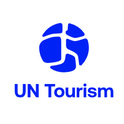Working Group progresses on the Convention on the Protection of Tourists
The continuous growth of the tourism sector and its current trends and challenges, including those related to safety and security and the expansion of new businesses models, require an adaptation of the global legal framework. In this regard, the World Tourism Organization (UNWTO) has been working since 2011 on the development of an international convention to protect tourists and ensure confidence in the tourism sector, an initiative now in its final phase.
The 9th meeting of the Working Group on the International Convention on the 'Protection of Tourists and the rights and obligations of Tourism Service Providers' took place on 26-27 January 2017. The meeting was focused on advancing the Draft Convention by incorporating the comments of UNWTO Member States and the members of the Working Group in the framework of the Public Consultation made between August and November 2016.
The protection of tourists in emergency situations, enhancing cooperation among States and information sharing are issues of the utmost importance for the Organization, together with the overall protection of tourists as consumers. These are major areas in the Convention and will ultimately improve confidence in tourism service providers. As UNWTO Secretary-General Taleb Rifai has previously expressed, "we are at a highly relevant crossroads; tourism is increasing every year and governments and private sector need tools to build a framework to guarantee tourist protection among other trends".
The final Working Group meeting will take place on 28-29 March 2017 at the UNWTO Headquarters in Madrid and will aim to finalize text of the Draft Convention, for its submission to the XXII UNWTO General Assembly (Chengdu, China, September 2017).
The Working Group on the International Convention on the 'Protection of Tourists and the rights and obligations of Tourism Service Providers' was created by the Decision of the UNWTO Executive Council in 2011. The Working Group, chaired by Mr. Zoltan Somogyi (UNWTO Executive Director for Programme and Coordination), integrates representatives of UNWTO Member States, International Organizations and the private sector.
About UN Tourism
The World Tourism Organization (UN Tourism) is the United Nations agency responsible for the promotion of responsible, sustainable and universally accessible tourism.
As the leading international organization in the field of tourism, UN Tourism promotes tourism as a driver of economic growth, inclusive development and environmental sustainability and offers leadership and support to the sector in advancing knowledge and tourism policies worldwide.
Our Priorities
Mainstreaming tourism in the global agenda: Advocating the value of tourism as a driver of socio-economic growth and development, its inclusion as a priority in national and international policies and the need to create a level playing field for the sector to develop and prosper.
Promoting sustainable tourism development: Supporting sustainable tourism policies and practices: policies which make optimal use of environmental resources, respect the socio-cultural authenticity of host communities and provide socio-economic benefits for all.
Fostering knowledge, education and capacity building: Supporting countries to assess and address their needs in education and training, as well as providing networks for knowledge creation and exchange.
Improving tourism competitiveness: Improving UN Tourism Members' competitiveness through knowledge creation and exchange, human resources development and the promotion of excellence in areas such as policy planning, statistics and market trends, sustainable tourism development, marketing and promotion, product development and risk and crisis management.
Advancing tourism's contribution to poverty reduction and development: Maximizing the contribution of tourism to poverty reduction and achieving the SDGs by making tourism work as a tool for development and promoting the inclusion of tourism in the development agenda.
Building partnerships: Engaging with the private sector, regional and local tourism organizations, academia and research institutions, civil society and the UN system to build a more sustainable, responsible and competitive tourism sector.
Our Structure
Members: An intergovernmental organization, UN Tourism has 160 Member States, 6 Associate Members, 2 Observers and over 500 Affiliate Members.
Organs: The General Assembly is the supreme organ of the Organization. The Executive Council take all measures, in consultation with the Secretary-General, for the implementation of the decisions and recommendations of the General Assembly and reports to the Assembly.
Secretariat: UN Tourism headquarters are based in Madrid, Spain. The Secretariat is led by the Secretary-General and organized into departments covering issues such as sustainability, education, tourism trends and marketing, sustainable development, statistics and the Tourism Satellite Account (TSA), destination management, ethics and risk and crisis management. The Technical Cooperation and Silk Road Department carries out development projects in over 100 countries worldwide, while the Regional Departments for Africa, the Americas, Asia and the Pacific, Europe and the Middle East serve as the link between UN Tourism and its 160 Member States. The Affiliate Members Department represents UN Tourism's 500 plus Affiliate members.
